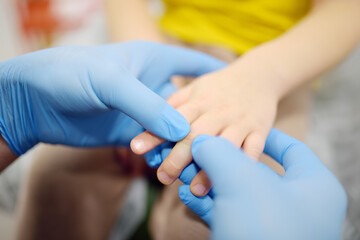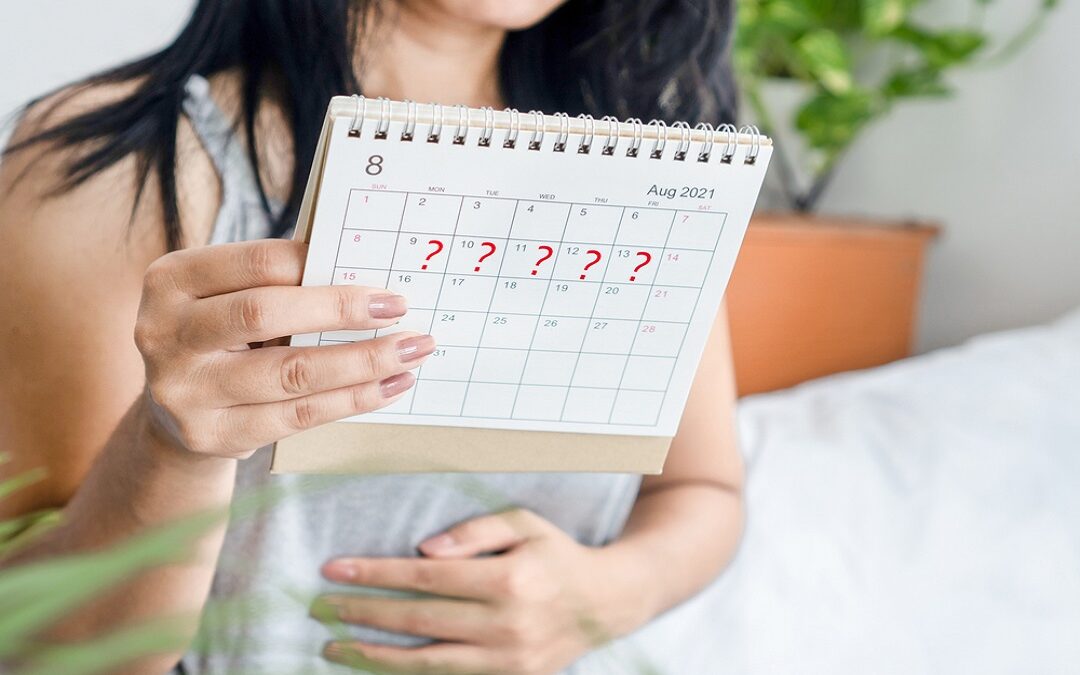As a pediatrician at ONP Hospitals, I’ve witnessed countless stories of resilience and recovery, but one case stands out—little Anaya’s story. Anaya, a spirited four-year-old, came to us after a severe finger injury that happened while she was playing in the backyard....
There’s nothing like a late period to add some extra stress to your life. The most obvious culprit — pregnancy — is one possibility, but there are lots of other reasons.
What is a “Late” Period?
Although a few people might have pinpoint predictability with periods, most have a little variation. So if your period is a day or two late, don’t panic. “Your menstrual cycle is the length of time from day one of your period today to one of your next periods. On average, these cycles are 24 to 38 days long.
That means that a 28-day cycle one month and a 26-day cycle the next month is probably nothing to worry about. Your period might be considered late if :
It’s been more than 38 days since your last period. You’re normally really regular, and your period is more than three days late. Things that delay your period A missed period is often the first sign of pregnancy, but there are other reasons for lateness, too. Here are some other factors that can delay your monthly flow :
Extreme Diet and Exercise
A healthy diet and regular exercise can do wonders for your health. But if you overdo it, you might say bye-bye to your periods, at least temporarily.
“Athletes who train really hard or who don’t get enough calories may stop menstruating, It’s the body’s way of telling you that it doesn’t have enough resources to support a pregnancy.”
When your periods stop due to weight loss, diet or exercise, you’re experiencing secondary amenorrhea. This means you previously had periods, but they have stopped. Secondary amenorrhea might happen to you if you :
Eat an extreme, calorie-restricted diet. Have an eating disorder, such as anorexia or bulimia. Lose a lot of weight in a short amount of time. Undergo hardcore exercise training, such as for a marathon. Polycystic ovary syndrome (PCOS) is a hormonal imbalance that interferes with the release of an egg (ovulation). When you don’t ovulate, you usually don’t have a period. Many people with PCOS have irregular, late, or missing periods. Other symptoms of PCOS include :
1. Acne.
2. Excess facial or body hair.
3. Thinning hair.
4. Weight gain or trouble losing weight.
5. Doctors diagnose PCOS by checking your symptoms and performing medical tests when needed. Medication and lifestyle changes can help manage the symptoms.
Stress
High levels of stress aren’t just a drain on your mental well-being. They can cause physical symptoms, too — and your periods could be in the line of fire.
“Minor, everyday stress usually won’t affect your period. “But big-time stressors interfere with your body’s delicate hormone balance, which can ultimately make your period late.”
Some examples of major stress include:
- Death of a loved one.
- High school or college exams.
- Job loss
- Major life events, such as a wedding.5.
- Hormonal contraceptives
- Hormonal birth control contains progestin or a combination of progestin and estrogen. These hormones stop ovulation and prevent pregnancy. Hormonal contraceptives include :
Oral contraceptive (“the pill”): These are pills you take every day. Birth control patch: This is a sticker that you place on your skin and replace each week. Vaginal ring: You place this ring-shaped device in your vagina and change it once a month.
Injectable contraceptive: This is a shot your doctor gives you every three months. Hormonal implant: This implant is a tiny rod-shaped device that a doctor places under the skin in your upper arm. Hormonal intrauterine device (IUD): This is a T-shaped device that your doctor places inside your uterus. Some hormonal birth control causes a false period known as withdrawal bleeding. You’ll have this “period” when you have your hormone-free week with the pill, ring or patch. But if you keep taking the contraceptive without the hormone-free week, you might have some light spotting or no period at all.
“It’s OK to miss a period if you’re taking hormonal contraceptives continuously. But ask your doctor before trying it to be sure it’s safe for you.”
Thyroid conditions
Your thyroid gland is a butterfly-shaped gland at the base of your neck. And it’s one of the many hormonal mechanisms that help dictate your periods. If it’s overactive (hyperthyroidism) or underactive (hypothyroidism), you might have a late period.
“Thyroid problems are common, affecting more than 10% of women “They can cause irregular or missing periods and can be mistaken for menopause.”
Youth
It’s the rare young person who starts menstruating and immediately has a 28-day cycle every month. Usually, it takes a few years for things to settle down. That’s because preteens and teens have an immature hypothalamic-pituitary-ovarian (HPO) axis.
“The HPO axis is the hormonal system that regulates your ovulation and menstrual cycles,” Dr. Higgins says. “It takes a few years for the HPO axis to mature and regulate your periods.”
Typically, your period should even out and become more predictable in your late teens and 20s.
Perimenopause
Perimenopause is the transition from the reproductive years to menopause. This transition might take a year or two, or it could take several years. And during this time, your cycle might be all over the place. It could be 25 days one month and 29 the next.
“Irregular periods during perimenopause are OK “but if your periods are consistently getting heavier or closer together, see your doctor.”
The average age of menopause is 51, so perimenopause often begins in your 40s or 50s. Usually, perimenopause comes with other symptoms, too, such as:
- Hot flashes.
- Insomnia.
- Mood changes.
- Night sweats.
- Vaginal dryness.
- Don’t ignore a missed period
If you keep track of your periods, you’ll probably know right away if something is amiss. Keep a period diary in your calendar or get an app designed for that purpose. Your period records can provide valuable information for you and your doctor.
“Doctors want to know details about your previous periods so we can determine if there’s an issue “An occasional late period is often the result of something minor, but if you frequently have late or irregular periods, check with your doctor to rule out other health conditions.”




